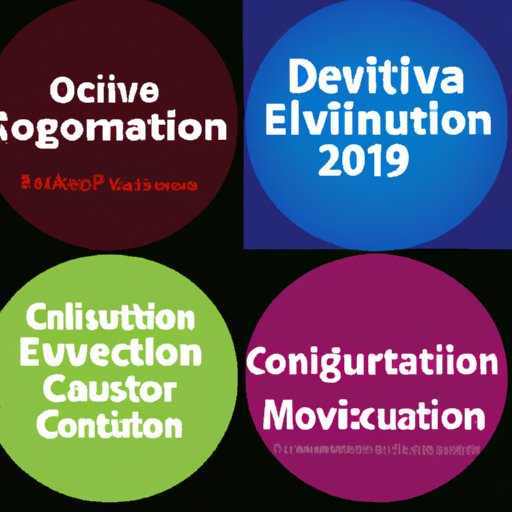Introduction
Computer science is an ever-evolving field that has had a major impact on the world we live in today. But when did computer science start? To answer this question, it’s important to understand the definition of computer science and how it has developed over time.
Definition of Computer Science
According to the Association for Computing Machinery (ACM), “Computer science is the study of computers and computational systems. It includes their theoretical and algorithmic foundations, hardware and software design, and their application in the world.” In other words, computer science is the study of processes that interact with data and that can be represented as data in the form of programs.
Overview of the Development of Computer Science
Computer science has been around since the 1940s, but its roots date back even further. In the early 20th century, mathematicians such as Alan Turing and Alonzo Church used mathematical logic to solve complex problems. This laid the groundwork for what would become the foundation of computer science. Over the decades, computer science has grown and evolved, leading to the development of new technologies and applications.

Exploring the Roots of Computer Science
Where It All Began
The roots of computer science began in the 1930s with the invention of the first electronic computers. At the time, these computers were large and expensive, so they were mainly used by governments and universities. Despite their limited use, they paved the way for the development of modern computers.
The Pioneers Behind the Birth of Computer Science
Alan Turing was one of the pioneers of computer science. He was a mathematician who developed the concept of a universal machine, which could solve any problem given enough memory and time. His work helped pave the way for the development of the modern computer. Another pioneer was Alonzo Church, who developed the lambda calculus, which is a formal system of logic. These two men are considered to be the founders of computer science.

Examining the Milestones of Computer Science Through the Decades
1940s – The Beginnings of Computer Science
The 1940s marked the beginnings of computer science. During this decade, the first electronic computers were developed, and the first programming languages were created. At the same time, the first algorithms were developed, which allowed computers to process data faster and more efficiently.
1950s – The Early Years of Computer Science
The 1950s saw the development of the first computers designed for commercial use. During this decade, the first computer networks were created, and the first operating systems were developed. At the same time, research into artificial intelligence began, which would go on to shape the future of computer science.
1960s – The Emergence of Computer Science
The 1960s saw the emergence of computer science as a distinct discipline. During this decade, the first computer programming courses were offered at universities, and the first computer science journals were published. At the same time, research into artificial intelligence advanced, which led to the development of expert systems and natural language processing.
1970s – The Expansion of Computer Science
The 1970s marked the expansion of computer science. During this decade, the first personal computers were developed, and the internet began to take shape. At the same time, research into artificial intelligence continued, leading to the development of neural networks and machine learning.
1980s – The Mainstreaming of Computer Science
The 1980s saw the mainstreaming of computer science. During this decade, the first graphical user interfaces were developed, and the first computer games were released. At the same time, research into artificial intelligence progressed, leading to the development of expert systems and robotics.
1990s – Further Advances in Computer Science
The 1990s saw further advances in computer science. During this decade, the World Wide Web was developed, and the first web browsers were released. At the same time, research into artificial intelligence advanced, leading to the development of speech recognition and autonomous vehicles.
2000s – The Digital Revolution and Beyond
The 2000s saw the beginning of the digital revolution. During this decade, the first smartphones were released, and social media became popular. At the same time, research into artificial intelligence progressed, leading to the development of deep learning and machine vision.

Tracing the Evolution of Computer Science From Its Inception to Present Day
How Computer Science Has Changed Over Time
Since its inception, computer science has changed drastically. Computers have become smaller, faster, and more powerful, and new technologies have been developed, such as the internet, artificial intelligence, and virtual reality. As a result, computer science has become an integral part of our lives, and its influence will only continue to grow.
How Computer Science Has Impacted Our Lives
Computer science has had a profound impact on our lives. It has transformed the way we communicate, work, and play. For example, according to a study by the Pew Research Center, 95% of Americans now own a smartphone, and 77% of Americans use social media. Additionally, computer science has allowed us to explore new frontiers, such as space exploration and medical advancements.
Conclusion
Computer science has come a long way since its inception in the 1940s. From the development of the first electronic computers to the onset of the digital revolution, computer science has had a major impact on our lives. As technology continues to advance, computer science will remain an integral part of our lives and continue to shape the future.
(Note: Is this article not meeting your expectations? Do you have knowledge or insights to share? Unlock new opportunities and expand your reach by joining our authors team. Click Registration to join us and share your expertise with our readers.)
